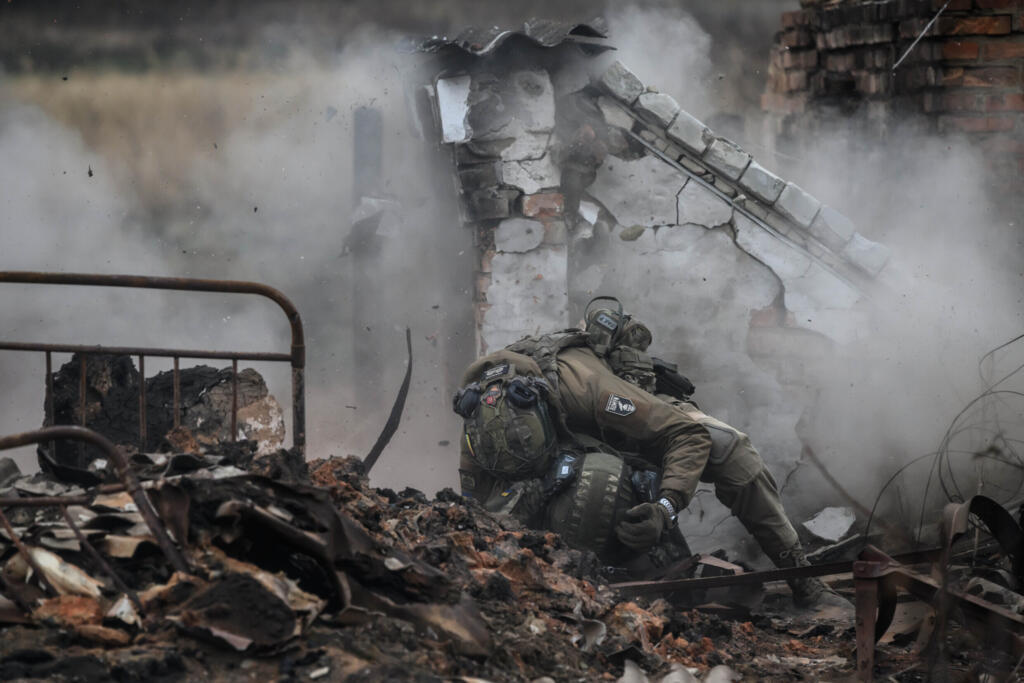News Flash

UNDISCLOSED, Ukraine, Nov 7, 2025 (BSS/AFP) - With bright blue eyes and a dagger tattoo on his temple, Mykola Lebedev has the gaze of a child but the determination of an adult: the 18-year-old Ukrainian recruit is about to throw his first grenade.
Plagued by manpower shortages since Russia invaded in 2022, Ukraine is trying to recruit even younger men to fight on the front.
Lebedev -- "Kolya" to his friends -- is one of those who has signed a lucrative army contract, and now being trained in a secret location before deployment in the east.
Looking on, his instructor crossed himself as Kolya pulled the safety pin and threw the grenade. The bunker trembled in the explosion.
"Congratulations, you've lost your virginity!" the instructor said.
Coughing and spitting on the floor, Kolya clambered to his feet with difficulty.
Around him stood scorched hills and the ruins of what was once was a village, briefly occupied by Moscow at the start of its invasion in February 2022 and then destroyed by relentless shelling.
Kolya knows first-hand the devastation Russia has wrought on his country.
On February 26, 2022, two days after Russia invaded, Moscow's forces seized a village neighbouring his in southern Ukraine.
"Torn bodies were lying on the streets, destruction, and so on. It was very hard to look at," he told AFP.
Then aged 15, he pledged he would join the army.
"I couldn't just stand by and do nothing."
Under pressure from his parents, Kolya moved to Poland just before his 18th birthday -- when he would have been blocked from leaving the country under martial law.
Kyiv has since relaxed those rules, allowing men aged up to 22 to travel abroad.
"But I realised that I still wanted to fight and defend my country," he told AFP. And so, despite tearful appeals from his mother, he returned and enlisted in July.
- 'Listen to the sky' -
To his instructor -- only 25 himself but already an experienced veteran -- Kolya and his fellow young recruits are "Ukraine's hope".
"But their war will be harder than ours."
Russian drones have turned the front line into a killing zone around 15 kilometres (10 miles) deep.
Inside the ruins of an abandoned house, Kolya and two comrades were practising how to escape them.
Clad in a bulletproof vest, he held a gun close to his chest. The buzz of a drone echoed through the corridors.
The noise is incessant along the 1,300-kilometre (800-mile) front, used as a tactic to traumatise and exhaust soldiers who have to be constantly aware of the threat from the sky.
In a moment of silence, they rushed outside to shelter in a nearby grove.
The drone smashed into the ground at their feet.
"You're dead," the instructor said.
"Why didn't you listen to the sky?"
"We didn't see it," Kolya responded.
The war has already taken one of Kolya's friends, seriously wounded another and left his uncle with burns covering more than 90 percent of his body.
His father is fighting and his stepfather -- one of only two survivors from his original platoon -- deserted to look after his three children.
When Kolya told his stepfather he was joining the army, "he called me an idiot," he said, laughing.